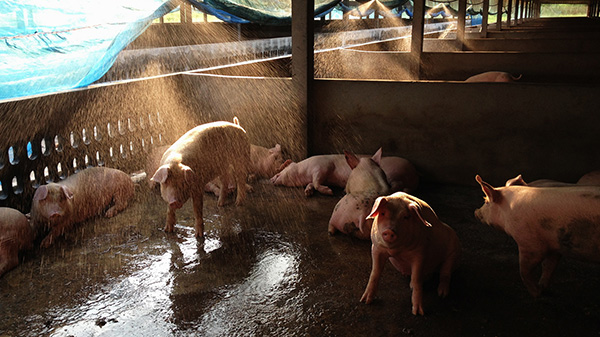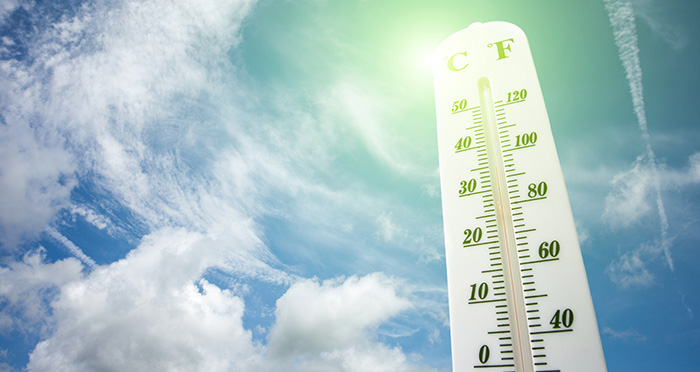After a series of record-breaking heatwaves hit the UK, an agricultural expert is warning about the potentially fatal impact of heat stress on livestock and outlined steps farmers can take to reduce the risk.
Mercury levels continue to climb year after year, with June 2019 officially named the hottest June in recorded history. July saw temperatures soar even further, breaking global temperature records, with Cambridge reaching a sweltering 38.7°C on July 25.
Despite a wet and windy start to August, the Met Office is predicting temperatures will start to climb again, with hot weather expected to remain until September.
As heatwaves become more commonplace, Sarah Verity, of Farmers and Mercantile Insurance Brokers (FMIB), has urged farms to not overlook the effect of rising temperatures on livestock and to take precautionary measures against heat stress.
She said: “Farming is a weather dependent industry, acutely sensitive to temperature extremes, so the summer can be an extremely worrying and testing time of year for farmers. Harvest often takes precedence in these critical months.
“Of course, the wellbeing of the livestock is also top priority for farmers, but it takes just a few extra degrees, over a relatively short period of time, for animals to suffer the effects of heat stress – it can happen quickly and without much warning.”

Ms Verity said that pigs are much more sensitive to heat than other animals because they lack the ability to sweat.
“Signs of stress in pigs include open-mouth breathing, vocalisation, blotchy skin, stiffness, muscle tremors and reluctance to move,” she said. “If pigs begin to demonstrate these symptoms, allow them to rest, keep them cool with fans and have access to plenty of water.
“It can be helpful to sprinkle cool water onto the pig. Avoid pouring large amounts of cold water onto the pig, as this could cause shock; pigs housed outside need plenty of shade.”




